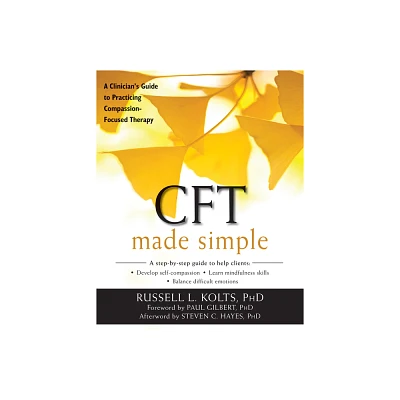Home
Simplexity: Why Simple Things Become Complex (and How Complex Things Can Be Made Simple)
Loading Inventory...
Barnes and Noble
Simplexity: Why Simple Things Become Complex (and How Complex Things Can Be Made Simple)
Current price: $38.00


Barnes and Noble
Simplexity: Why Simple Things Become Complex (and How Complex Things Can Be Made Simple)
Current price: $38.00
Loading Inventory...
Size: OS
*Product Information may vary - to confirm product availability, pricing, and additional information please contact Barnes and Noble
Why are the instruction manuals for cell phones incomprehensible?
Why is a truck driver's job as hard as a CEO's?
How can 10 percent of every medical dollar cure 90 percent of the world's disease?
Why do bad teams win so many games? Complexity, as any scientist will tell you, is a slippery idea. Things that seem complicated can be astoundingly simple; things that seem simple can be dizzyingly complex. A houseplant may be more intricate than a manufacturing plant. A colony of garden ants may be more complicated than a community of people. A sentence may be richer than a book, a couplet more complicated than a song. These and other paradoxes are driving a whole new sciencesimplexity that is redefining how we look at the world and using that new view to improve our lives in fields as diverse as economics, biology, cosmology, chemistry, psychology, politics, child development, the arts, and more. Seen through the lens of this surprising new science, the world becomes a delicate place filled with predictable patternspatterns we often fail to see as we're time and again fooled by our instincts, by our fear, by the size of things, and even by their beauty. In
Simplexity, Time
senior writer Jeffrey Kluger shows how a drinking straw can save thousands of lives; how a million cars can be on the streets but just a few hundred of them can lead to gridlock; how investors behave like atoms; how arithmetic governs abstract art and physics drives jazz; why swatting a TV indeed makes it work better. As simplexity moves from the research lab into popular consciousness it will challenge our models for modern living. Jeffrey Kluger adeptly translates newly evolving theory into a delightful theory of everything that will have you rethinking the rules of business, family, art your world.
Why is a truck driver's job as hard as a CEO's?
How can 10 percent of every medical dollar cure 90 percent of the world's disease?
Why do bad teams win so many games? Complexity, as any scientist will tell you, is a slippery idea. Things that seem complicated can be astoundingly simple; things that seem simple can be dizzyingly complex. A houseplant may be more intricate than a manufacturing plant. A colony of garden ants may be more complicated than a community of people. A sentence may be richer than a book, a couplet more complicated than a song. These and other paradoxes are driving a whole new sciencesimplexity that is redefining how we look at the world and using that new view to improve our lives in fields as diverse as economics, biology, cosmology, chemistry, psychology, politics, child development, the arts, and more. Seen through the lens of this surprising new science, the world becomes a delicate place filled with predictable patternspatterns we often fail to see as we're time and again fooled by our instincts, by our fear, by the size of things, and even by their beauty. In
Simplexity, Time
senior writer Jeffrey Kluger shows how a drinking straw can save thousands of lives; how a million cars can be on the streets but just a few hundred of them can lead to gridlock; how investors behave like atoms; how arithmetic governs abstract art and physics drives jazz; why swatting a TV indeed makes it work better. As simplexity moves from the research lab into popular consciousness it will challenge our models for modern living. Jeffrey Kluger adeptly translates newly evolving theory into a delightful theory of everything that will have you rethinking the rules of business, family, art your world.





![Wood Bending Made Simple [With DVD] (Made Simple (Taunton Press)) (Paperback)](https://cdn.mall.adeptmind.ai/https%3A%2F%2Fimages.booksense.com%2Fimages%2F497%2F852%2F9781600852497.jpg_medium.jpg)











